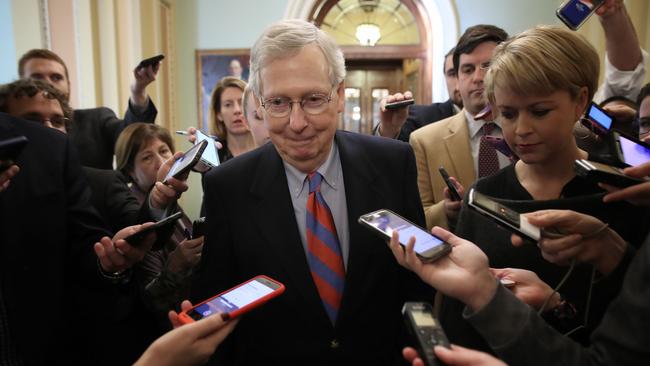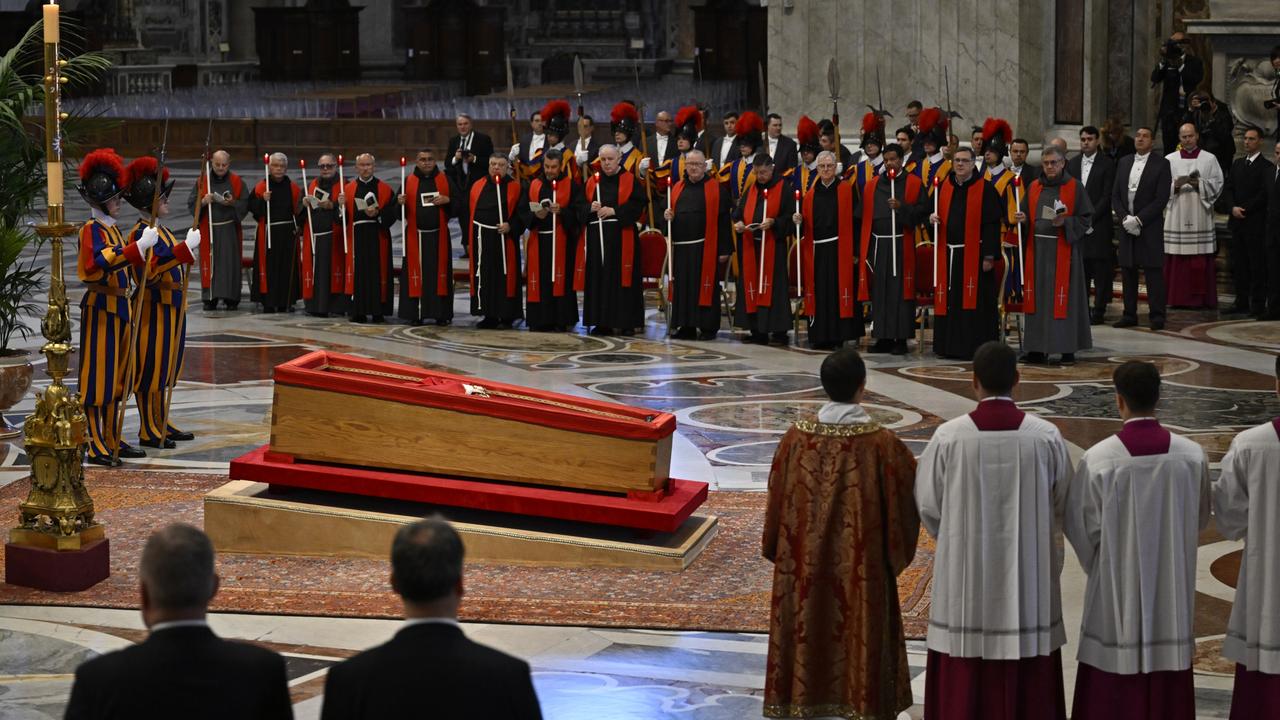
Increasingly Trump is going it alone in international affairs, pitting his populist, isolationist instincts against those of mainstream Republicans who support a broader role for the US in global politics.
For the first two years of the Trump presidency, Republicans mostly papered over these differences in their quest to work with their Republican President. But Trump’s decision to withdraw all US troops from Syria and his proposal to bring up to 7000 troops home from Afghanistan is a step too far for Republicans.
It comes on top of growing differences between Republicans and the President on policies towards North Korea, Russia, Saudi Arabia and Islamic State.
The Republican-controlled Senate warned yesterday that Islamic State and al-Qa’ida remained “a global threat” and that the “withdrawal of the United States forces from the ongoing fight against these groups … could allow terrorists to regroup, destabilise critical regions, and create vacuums that could be filled by Iran or Russia, to the detriment of United States interests and those of our allies”.
Trump claims that ISIS is defeated and so the US mission in Syria is over. In Afghanistan he has always wanted to bring US troops home from a conflict he sees as a waste of Americans lives and money.
The debate over the size of America’s global footprint — whether it should act as a world policeman — has traditionally been one between Republicans and Democrats. But Trump, as a populist, runs his own race and was elected on promises to extract the US from long-term overseas conflicts. At times Trump’s policies barely resemble those of the Republican Party.
Regardless of which president was in office, any US military withdrawal from Afghanistan would risk the collapse of the Afghan government and a takeover by the Taliban. So the question for Trump is whether the return of US troops is worth the risk of a Taliban takeover under his watch. Or should he maintain a US presence if only to prevent this, as Republicans believe?
Trump’s gut instinct has always been to honour his election promises so any withdrawal from Afghanistan is more likely to be earlier than later.
Similarly, Republicans are fearful of a rapid withdrawal of the 2000 US troops in Syria, fearing that it could help ISIS regenerate and would create a vacuum for Russia and Iran.
Republicans agree with former defence secretary Jim Mattis who believed such a withdrawal would be a grave mistake and who resigned over the issue. But Trump shows no sign of being upset about his growing divide with the Republicans on foreign policy.
The Senate’s decision to rebuke him sends a clear message, but it is unlikely to slow Trump down in his quest to recast America’s role in the world.




The Senate’s rebuke of Donald Trump over withdrawing US troops from Syria and Afghanistan shows the deepening divide between Republicans and the President on foreign policy.